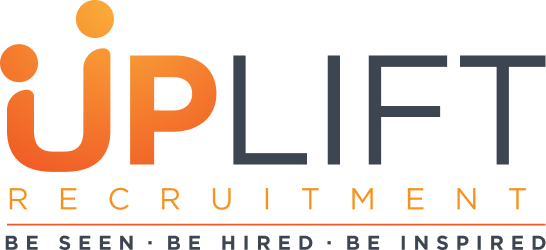
Interview Advice for Hiring Managers
Hello, hiring managers.
Do you ever find yourself wondering how you got on the other side of the desk? Did you receive formal training regarding interviewing potential candidates or are you just making it up out as you go?
Hiring the right people for your company isn’t easy. If it was, none of you would come to us with staffing problems. You would have zero turnover, employees that stayed with you for-eve-r, and profit and loss statements that make your accountants swoon…
“Hold on a second, hiring is not that easy,” you say.
This is the thing about hiring…
If you can do an outstanding job at the outset, you’ll have fewer problems, waste less time, and be more productive in the long run.
Sounds great, right? That’s why it is important you and your team create best practices for hiring and train yourselves to spot a winning candidate from the get-go.
If you can find a great person quickly and efficiently, not only can you get back to doing your ‘real’ job, but you can expect that person to hit the ground running towards your company’s success.
To quote Matt Mullenweg, the man behind the WordPress empire, “We focus on two things when hiring. First, find the best people you can in the world. And second, let them do their work. Just get out of their way.”

How to Present Yourself So That Top Talent Stays
“Be likable.” You’ll hear this vague advice given to candidates all the time. However, this more politically correct way of saying, “don’t be a jerk,” applies doubly to hiring managers.
First of all, hiring managers should avoid asking inappropriate questions like, “are you married?” “How old are you?” or “Do you go to Church?” Offensive questions or those seeking irrelevant information should be avoided. Take a second to think about how these questions may be interrupted as hiring criteria should the applicant not get the job.
Second, make your interview conversational, not like you’re interviewing a witness on the stand in a court of law. Your job is to ask a question and then get out of the way so that the candidate may reveal his or her character, skills, and experience as they relate to the role. You should do much more listening than talking. Also beware of grilling a candidate and challenging his or her responses. This is not a debate. If you don’t like what you hear, move on and take note without badgering the candidate.
Third, don’t be boring. Take notes but don’t be engulfed in your notepad. Don’t run through a bunch of standard interview questions ripped off from Google. ‘What is your greatest weakness?’ has been done so many times it’s no longer interesting. Don’t be surprised when you get a canned answer. Try to be engaging and relate to the candidate, after all, you once stood in his or her shoes.

Look for These Traits in Your Next Candidate
Your next employee doesn’t need to look like you, act like you, or even be someone you want to have a beer with. In fact, the old saying that you should hire based on a candidate’s fitness for after-work drinks with the team is dated and non-productive.
Here’s why the old have a beer-with-your-employee-test is seriously flawed:
- It’s super subjective and kills diversity (you hire a like-minded individual, who hires more like-minded individuals)
- It leads to unintended discrimination (both against non-drinkers and people who have a different background than the interviewer)
- It doesn’t necessarily land the best candidate (party boy might be fun at the bars but stuck in this role)
Instead, look for these traits. A great candidate that will turn into an incredible asset for your company as an employee will be able to explain how they demonstrate the following traits in a casual, conversational way:
- AMBITION – They show up prepared and excited for the interview. They can demonstrate the accomplishment of prior goals and have an idea about where they are headed next.
- CURIOSITY – They’ve taken the time to learn about your company and seem genuinely curious about learning new things.
- HUMILITY – The person accepts responsibility for failure and shares credit for success with teammates.
- PERSEVERANCE – Candidates can provide context to their accomplishments and show how they struggled and overcame that struggle.
- CONSTANTLY LEARNING – Ask questions about how the person learns a new skill, what they read or do in their spare time, and how they learned the responsibilities of their last role. Figure out how they learn and whether knowledge stays with them.
- OPTIMISM – Studies show that optimistic people are more successful. Look for indicators that this person views life in an optimistic light, is generally upbeat, and can turn obstacles into success by being resourceful and thinking outside the box.
- HONESTY – Is the candidate forthcoming about difficult situations such as getting terminated or leaving a position quickly after starting? Being open, honest, and transparent is a virtue you should prize in your employees. Avoid trouble down the track by looking for this trait.
Most importantly, let the candidate you are interviewing have the chance to demonstrate their true value and to communicate what they’ve done in the past and where they’re going in the future. Try to actively seek out people with totally different backgrounds and ways of thinking. Divergent thinking is key to new solutions. If you do these things, we believe you will find that you will soon be surrounded by outstanding people.
What are your best hiring hacks? How do you spot people who have what it takes to be successful?
